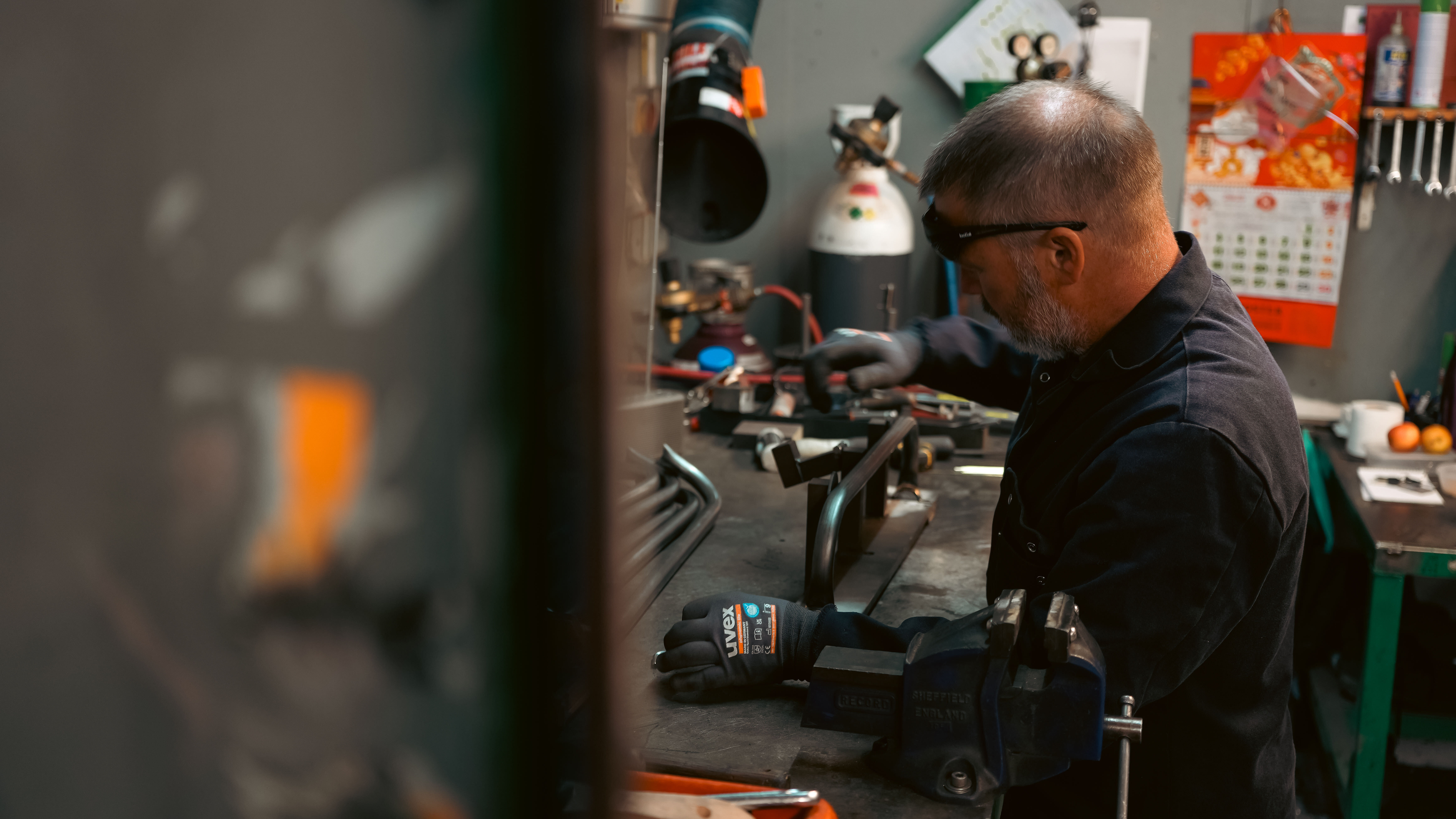If Cycle to Work is to be changed in the Budget perhaps it should be in a way that benefits British jobs - and the Treasury need not spend a penny
Is a substantial boon for the British Cycling Industry hiding in plain sight?


The latest race content, interviews, features, reviews and expert buying guides, direct to your inbox!
You are now subscribed
Your newsletter sign-up was successful
There is a familiar feeling of tension ahead of the UK's Budget. While Westminster obsesses over manifesto pledges and the state of the coffers at the Treasury, cyclists have been paying closer attention to something much more specific: potential changes to the Cycle to Work scheme.
Much of the discussion has centred on whether a cap is imminent. Despite the Scheme being run as a tax discount administered by employers, and needing no new cash from the Treasury, it's still come under the spotlight, with bashing cycling being a popular way to grab headlines, and fuel the culture wars further.
The scheme, for those wondering, allows people in the UK to make savings on new bikes and accessories by 'hiring' it from their employer, and then paying it off in instalments, giving less in tax in the process
This week, it has been reported that Motability, the scheme that helps disabled people buy cars, might be tightened to exclude foreign-made cars, I wondered if with a little creativity, the same idea could be applied to C2W, limiting purchases to bikes that are made or assembled in the UK.
A shift in the focus of the scheme could avoid a cap, and have far-reaching consequences beyond just commuter bike sales.

Andy Carr is the tech editor at Cycling Weekly. He was founder of Spoon Customs, where for ten years, him and his team designed and built some of the world's most coveted custom bikes. He knows a thing or two about the industry.
A British Bicycle boom
British bike manufacturing has faced challenges for years. While the quality of UK-made cycling products remains very high, large-scale manufacturing is only just beginning to pick up again, in small pockets, after a long decline.
Companies like Five Land Bikes, which make exceptionally well-made bike frames for OEM's, or Reap, based in Stoke, which produce competitive carbon composite bikes, have the capacity to expand their operations. Atherton, who make UK-manufactured MTBS, have been winning World Cup trophies on theirs. Brompton is alive and well, already producing bikes here at scale, but would no doubt welcome the boost given recent supply chain upheavals.
The latest race content, interviews, features, reviews and expert buying guides, direct to your inbox!
Despite obvious potential here, overseas production has dominated the market for decades, and the survival of domestic makers often feels like a minor miracle.
Nonetheless, companies like Pashley continue to build bikes in Stratford-upon-Avon with a level of craftsmanship that harks back to another era.
A policy change linking Cycle to Work eligibility to UK production would immediately favour these firms, which already keep their manufacturing local, Brompton, Moulton, and others like Feather, Shand, Sturdy – the list goes on.
Brands and assemblers
A second group that might feel an even stronger motivation to scale up domestic manufacturing includes brands that split their production between the UK and Europe. Sussex-based Mason Cycles is a good example. Some of its frames are produced in Italy, while others are made by Five Land Bikes in Scotland. The skills, tools, and experience are already present. What’s missing is enough volume and financial incentive to make even more here.
If buying from homegrown bike brands became a prerequisite for accessing C2W benefits, customer demand would naturally shift towards British-built options. As demand increases, companies like Mason would have every reason to extend their collaborations with Five Land or even invest further in their own UK-based fabrication.
Jobs would follow, along with benefits to the wider supply chain. The same scenario could apply to numerous small builders, cargo bike producers, adaptive cycle specialists, and regional workshops that have sustained their craft without much policy support.
Would a UK focused Cycle to Work Scheme actually deliver?
Practical hurdles exist. British manufacturing capacity is limited. Scaling it up requires investment, skilled labour, and time. Brands can’t simply switch production lines or double their output by tweaking machine settings. Cost is also a factor and British-made frames tend to be more expensive than those produced at large scale overseas.
Any restrictions would need to be clearly defined.
Restrictions could favour Assemblers also
Would UK assembly suffice? Would a frame welded in Italy but finished in the UK qualify? Where exactly should the boundary lie? Europe has seen significant job boosts through anti-dumping measures and tariffs, with many large brands, some US-based, assembling bikes within Europe, whilst importing frames and parts from Asia.
While we’re out of the single market, it’s hard to imagine brands like Trek relocating their entire assembly operations here from Germany. But what about Ribble or Handsling, who already assemble here, and ship bikes at considerable volume locally?
Surely they could assemble even more of their bikes domestically, if the incentive was in place.
New rules could encourage investment and growth
The UK excels at designing bikes and components. Many of the most admired bikes globally originate from British creators, even if manufacturing happens elsewhere. What the country lacks is a strong industrial base to match its design talent. Focused Cycle to Work scheme rules could incentivise manufacturers to invest in developing that missing layer.
If the Chancellor truly aims to support domestic industry practically, Rachel Reeves could do something remarkable with C2W this week. This isn’t about nostalgia but about unlocking opportunity. The ingredients for a robust UK bicycle industry already exist - the missing element is an economic boost to kick-start it.
Cycle to Work linked to UK production would influence what commuters buy, encourage investment, create skilled jobs, boost the companies already working at scale, and strengthen the network of small builders who have kept British bike-making alive against the odds.
In a Budget with limited options, the solution might not be a grand infrastructure pledge. It could be found in the workshops of makers waiting for a policy that finally gives them room to grow. After all, Cycle to Work is a tax discount; it doesn’t need additional funding, and the infrastructure to support it is already in place.

Andy Carr is the tech editor at Cycling Weekly. He was founder of Spoon Customs, where for ten years, him and his team designed and built some of the world's most coveted custom bikes. The company also created Gun Control Custom Paint. Together the brands championed the highest standards in fit, fabrication and finishing.
Nowadays, Andy is based in Norfolk, where he loves riding almost anything with two-wheels. He was an alpine ride guide for a time, and gets back to the Southern Alps as often as possible.
You must confirm your public display name before commenting
Please logout and then login again, you will then be prompted to enter your display name.